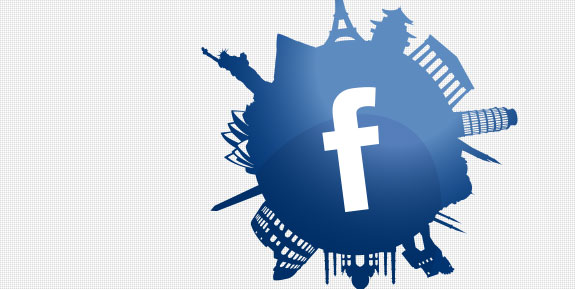Contrary to what many people may think, Facebook is not the demon of this generation. Opponents of the website feel as though Facebook interferes with people’s interpersonal communication skills. However, this form of social networking enables a society to showcase its equality and freedom of speech. While traditional media serves to provide citizens with information, social networking spreads news faster. In addition, members of Facebook can make connections with new people, which can spark intellectual curiosity.
Status updates, instant messaging and wall posts allow people to express their thoughts without censorship. People can discuss politics and issues of importance without suppressing their opinions. Active members of Facebook can share their ideas with a large audience and also receive feedback. According to kissmetrics.com, users create about 90 pieces of content a month and are connected to an average of 80 community pages. This statistic shows how engrossed people are with their pages and how willingly they share their views. Facebook also enables a new method of informal learning. Traditional face-to-face communication offers promising advantages to learning but is constrained by time and space. Obtaining new information is easier when hundreds of Facebook friends send out their thoughts with the tap of their fingers. Facebook allows people to learn and gather information on their own time in a comfortable environment.
“Facebook is an amazing site where people can share their feelings and thoughts with millions of other users,” said sophomore Bailey Greenberg. “Whether other members agree or not, at least you are putting your idea out into the universe.”
If a person were to reminisce to the time of milk carton advertisements or police station handouts, he would realize how much America’s society has advanced. Most of the time, social media is as fast, if not faster, than traditional news outlets. In 2012, a massive shooting inside a movie theater in Aurora, Colo. occurred and Facebook users were already posting updates before news crews arrived at the scene. Facebook does not only spread breaking news but also customary information. For example, Craig Breslow, a major league baseball player, learned of his own trade to the Arizona Diamondbacks via social media. Friends can link others to top news stories and spread information of international importance. Members can speak for members of society who do not have a voice. Facebook is one of the most poignant tools for spreading news because it reaches quicker and further than any other method of communication method up to date.
Brian Solis, author of Engage: The Complete Guide for Brands and Businesses to Build, Cultivate, and Measure Success in the New Web, once said that the people of social media “have a voice. . . through content and ideas we can unite around common passions, inspire movements and ignite change.” His words demonstrate how Facebook can enrich people’s lives. This network breaks down the traditional barriers of communication and allows users to form relationships with new people. Complete strangers are able to talk to one another and discuss prevalent issues through instant messaging, new stories and more. Moreover, high school seniors are taking advantage of technology more than ever. In an effort to connect with their future college classmates, seniors create pages and chat rooms to get more acquainted with their peers. Without Facebook, these students would not have the ability of speaking with these new people, which offers the benefit of getting a peek into their futures.
“Facebook has provides us with so many benefits,” said sophomore David Field. “Without it, our world would be a very different place.”
Facebook has changed the way society connects with one another. This advanced form of social media gives hope to the current generation. If users learn to use their Facebook account for the greater good, there will be no limit to the success they can achieve.








